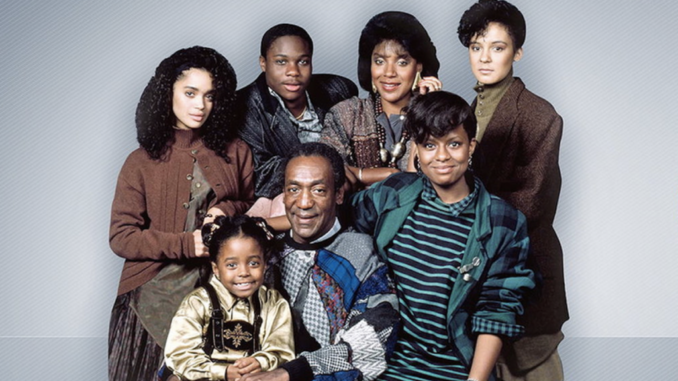
When The Cosby Show first aired in 1984, it didn’t just redefine the sitcom genre – it redefined how African American families were portrayed in the media. For years, Black families on television had often been depicted through negative or stereotypical lenses. However, The Cosby Show shattered these stereotypes by showcasing a highly educated, affluent African American family with a warm, loving, and functional dynamic. Bill Cosby’s vision for the show was to create a portrayal of African American excellence that would resonate with audiences of all backgrounds.
In this article, we will explore how The Cosby Show became a tribute to African American culture and excellence, shining a light on the importance of family, education, and success, and ultimately changing the landscape of television forever.
Changing the Narrative:
Before The Cosby Show, African American families on TV were often portrayed in a limited scope. While shows like Good Times and The Jeffersons showcased Black families, they often focused on themes of struggle, poverty, and overcoming adversity. Although these shows were important, they didn’t present a full picture of African American life.
The Cosby Show changed this narrative by introducing the Huxtables, a family where both parents were highly successful professionals – Dr. Cliff Huxtable, an OB-GYN, and Clair Huxtable, a lawyer. The Huxtables’ upward mobility and stable family structure painted a picture of Black excellence rarely seen on TV. By doing so, the show offered an inspiring alternative to the prevailing portrayals of African American families and showed that Black families could be wealthy, educated, and functional, just like any other family.
A Celebration of African American Education:
Education was a central theme of The Cosby Show, with Cliff and Clair consistently reinforcing the importance of academic achievement. They were not just professionals in their careers – they were also parents who cared deeply about their children’s futures. The show’s portrayal of education as a critical value wasn’t just a plot device, but rather a reflection of the values many African American families place on education as a means to break generational cycles and achieve success.
The Huxtables pushed their children to do well in school, but they also showed the importance of hard work and perseverance. Theo’s storyline, where he struggles with learning disabilities but ultimately finds his own way to succeed, was particularly impactful. It communicated a powerful message to viewers, particularly African American children, that no matter the obstacles, education was the key to achieving their dreams.
Cultural Representation:
In addition to showcasing an academically successful family, The Cosby Show also celebrated the cultural richness of African American life. The show featured African American traditions, music, and experiences in a way that felt authentic and proud. For example, musical guests like Lena Horne and Stevie Wonder made appearances, highlighting the achievements of Black artists and cultural figures. The Huxtables’ home life reflected an appreciation for Black history, with references to cultural touchstones that resonated with Black audiences.
The show didn’t just portray Black culture – it embraced it. Bill Cosby’s vision was to elevate African American culture in a positive, mainstream context. The Cosby Show was a groundbreaking step in showcasing Black excellence, proving that African American stories and experiences could be both relatable and aspirational for audiences of all races.
Empowering Future Generations:
One of the greatest achievements of The Cosby Show was how it inspired future generations of African Americans to pursue education and careers that they may have once thought were out of reach. By seeing successful Black professionals on their screens every week, children of all races saw the possibilities available to them, regardless of their background.
The show encouraged Black children to take pride in their heritage, strive for academic success, and pursue their passions with dedication and resilience. In this way, The Cosby Show not only provided entertainment but also acted as a motivational force for viewers to believe in themselves and their potential.
Conclusion:
The Cosby Show is more than just a sitcom; it is a lasting testament to the power of family, education, and cultural pride. By portraying an African American family as successful, loving, and intelligent, it changed the conversation about race on television and beyond. Bill Cosby’s vision brought African American excellence to the forefront of American television, inspiring countless viewers and shaping how Black families are represented in the media.
